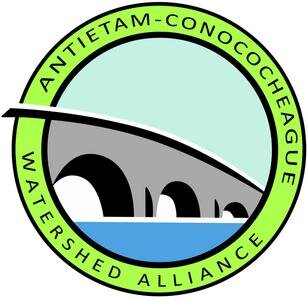Antietam Creek Watershed Earns C in First-Ever Report Card
Press Release
Antietam Creek Watershed Earns C in First-Ever Report Card
HAGERSTOWN, MD (June 12, 2025) – Today the Antietam-Conococheague Watershed Alliance released the first Antietam Creek Watershed Report Card. Overall, The Antietam Creek Watershed scored 48%, a C grade, showing some areas of strength and other areas needing improvement.
Watershed report cards are powerful tools used around the world to describe ecosystem status, increase public awareness, and inform decision makers. This document assesses ecosystem health of the creek and watershed. The report card was developed by the Antietam-Conococheague Watershed Alliance (ACWA), Beaver Creek Watershed Association (BCWA), and the University of Maryland Center for Environmental Science (UMCES).
“These report cards can help inform decision making about restoration and management in the Antietam Creek Watershed,” said Alexandra Fries, Program Manager, UMCES. “Report cards distill data into a grade similar to what students receive in schools, which helps to communicate complex information in a way that broad audiences can easily understand.”
The report card evaluates nine indicators in three categories; water quality, biota, and landscape. Overall, the highest scoring category was Water Quality (52%), followed by Biota (47%) and Landscape (45%). Overall, lack of tree canopy, poor trout populations, and high conductivity levels are concerning issues in the watershed.
The waters of the Antietam are vital to both the natural environment and the human communities within its watershed. Monitoring the waters of the Antietam provides valuable information for long-term planning, including identifying pollutants, protecting human health, and ensuring that the plants and animals that call the Antietam home can thrive.
“ACWA is thrilled to provide this baseline report on the health of the Antietam Watershed.” said Susan Simonson, President of ACWA. “Since 2019, our volunteers have taken it upon themselves to collect robust data and information, measuring human impacts on our waters & surrounding land. The Antietam is not only a popular source of recreation for the community, but it also contains sensitive tributaries and habitat which should be protected from further decline and measures taken to improve its health for the future.”
Overall, the report card reveals that actions to support natural landscapes are needed, including protecting and restoring forests and riparian areas, reducing impervious surfaces, and using green stormwater practices. This improves communities by reducing flooding, providing green space, and supporting recreation activities.





